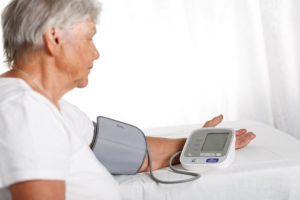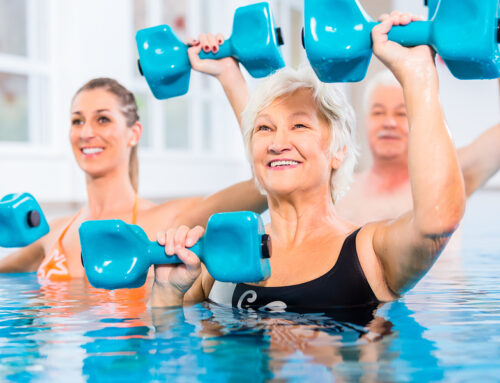If you are a family caregiver for an older adult with high blood pressure, you’re far from alone. In fact, it’s an extremely common condition that 100 million adults in America are afflicted with. People with high blood pressure may be looking for ways to reduce their numbers. A new study suggests that one way to lower blood pressure is by changing the temperature of the home.
Hypertension and the Environment
Researchers at University College London in the United Kingdom recently looked into how the temperature of a person’s environment may affect their blood pressure. The researchers used data collected from more than 4,500 people who responded to the Health Survey for England 2016.
After completing the survey, a nurse visited the participants home and recorded the temperature of the home. They discovered that for ever 1 degree Celsius reduction in the temperature of the house, systolic pressure (the top number) went up 0.48 mmHg and diastolic pressure (the bottom number) went up 0.45 mmHg. The researchers also found that temperature related results were more significant in people who were also not physically active.
Other Risk Factors for High Blood Pressure
Although house temperature isn’t considered a risk factor for high blood pressure at this time, there are several other factors that can increase a person’s risk of developing high blood pressure, and many of them are things you can help your aging relative control. Some modifiable risk factors for high blood pressure are:
- Lack of Exercise: People who live a sedentary lifestyle are more likely to have high blood pressure. Being inactive makes a person’s resting heart rate higher, which means the heart is working harder to pump blood through the body.
- Obesity: Carrying excess weight increases blood pressure because it requires more blood to feed the tissues. The more blood that has to move through arteries, the higher the pressure.
- Too Much Sodium: Eating too much sodium makes the body retain fluids, causing blood pressure to rise.
- Stress: Being under too much stress over a period of time can contribute to a rise in blood pressure. It may also cause people to engage in behaviors that can lead to high blood pressure, like eating unhealthy foods, not exercising, and drinking more alcohol than usual.
If your aging relative has high blood pressure, taking steps to change the above factors can help them to manage the condition. Elder care can assist them to make lifestyle changes. Elder care providers can cook healthy meals that are low in sodium and promote heart health. An elder care provider can also encourage older adults to be more physically active by going for walks with them, involving them in household activities, or driving them to fitness facilities or classes.
Sources
https://www.medicalnewstoday.com/articles/322851.php
https://www.heart.org/en/health-topics/high-blood-pressure/why-high-blood-pressure-is-a-silent-killer/know-your-risk-factors-for-high-blood-pressure
https://www.mayoclinic.org/diseases-conditions/high-blood-pressure/symptoms-causes/syc-20373410
https://www.webmd.com/hypertension-high-blood-pressure/guide/what-can-raise-blood-pressure#1
https://www.heart.org/en/health-topics/high-blood-pressure/understanding-blood-pressure-readings
For elder care in Southern NJ and the surrounding areas, call and talk to us at Home to Stay Healthcare Solutions (856) 321-1500.








